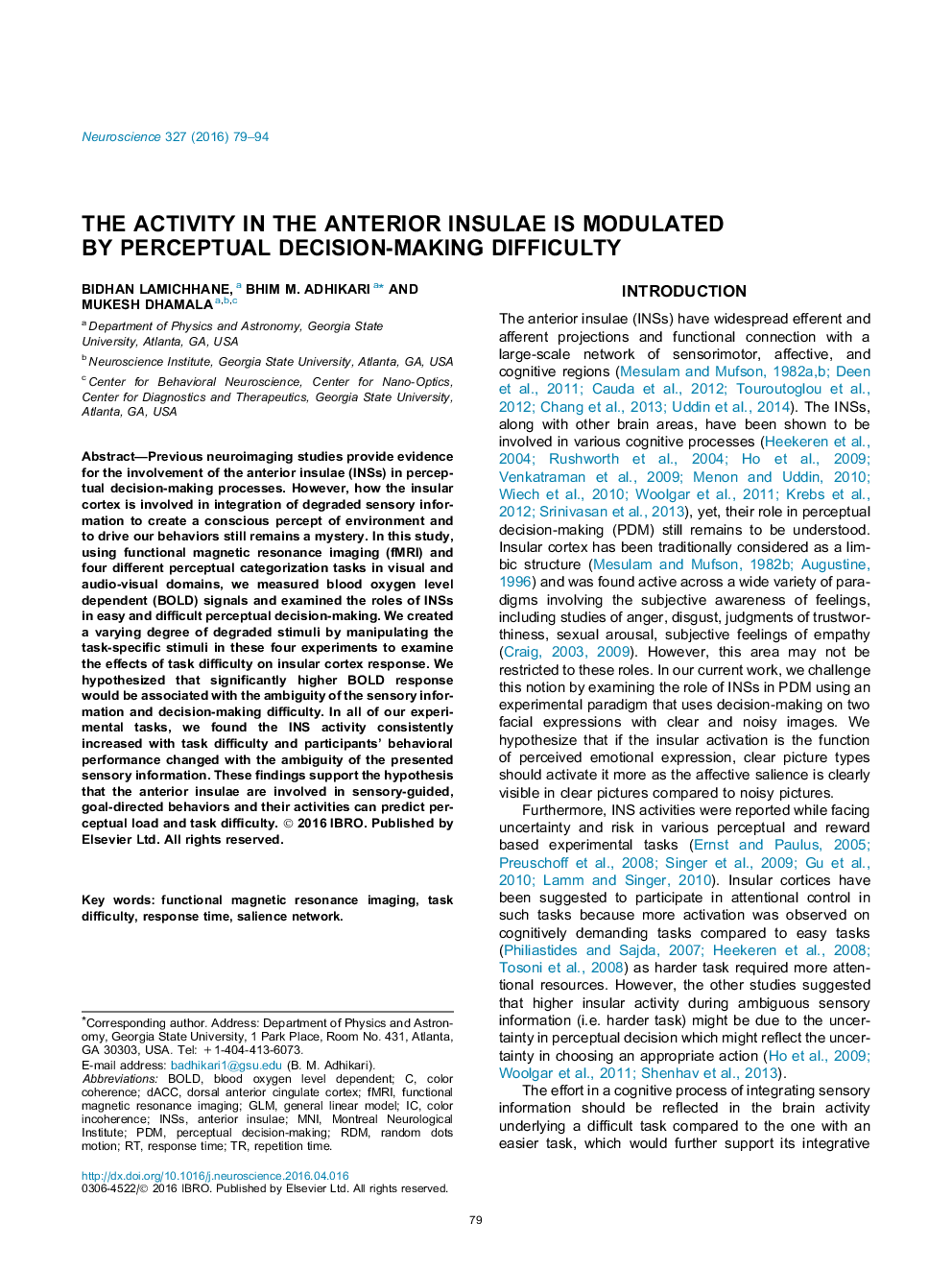| Article ID | Journal | Published Year | Pages | File Type |
|---|---|---|---|---|
| 6271327 | Neuroscience | 2016 | 16 Pages |
Abstract
Previous neuroimaging studies provide evidence for the involvement of the anterior insulae (INSs) in perceptual decision-making processes. However, how the insular cortex is involved in integration of degraded sensory information to create a conscious percept of environment and to drive our behaviors still remains a mystery. In this study, using functional magnetic resonance imaging (fMRI) and four different perceptual categorization tasks in visual and audio-visual domains, we measured blood oxygen level dependent (BOLD) signals and examined the roles of INSs in easy and difficult perceptual decision-making. We created a varying degree of degraded stimuli by manipulating the task-specific stimuli in these four experiments to examine the effects of task difficulty on insular cortex response. We hypothesized that significantly higher BOLD response would be associated with the ambiguity of the sensory information and decision-making difficulty. In all of our experimental tasks, we found the INS activity consistently increased with task difficulty and participants' behavioral performance changed with the ambiguity of the presented sensory information. These findings support the hypothesis that the anterior insulae are involved in sensory-guided, goal-directed behaviors and their activities can predict perceptual load and task difficulty.
Keywords
Related Topics
Life Sciences
Neuroscience
Neuroscience (General)
Authors
Bidhan Lamichhane, Bhim M. Adhikari, Mukesh Dhamala,
